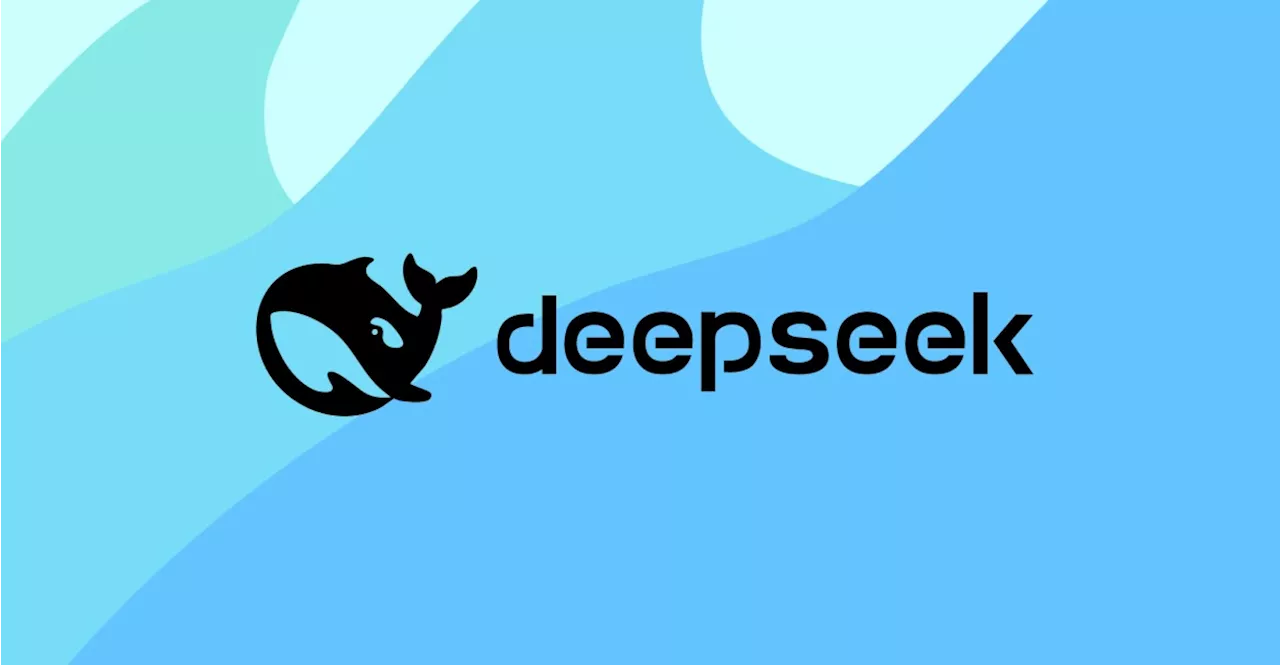OpenAI and Trump's AI advisor allege that China-based DeepSeek may have used OpenAI's ChatGPT data to train its own chatbot. While no concrete evidence has been presented, the claims raise concerns about intellectual property theft and fuel the debate surrounding AI development ethics.
DeepSeek, a Chinese AI company, has been accused of copying ChatGPT's technology to build its own chatbot. OpenAI, the creator of ChatGPT, along with Donald Trump's top AI adviser, David Sacks, have raised concerns about DeepSeek's practices. While neither has provided concrete evidence of intellectual property theft, their statements have sparked a debate and scrutiny over DeepSeek's rapid advancements.
OpenAI claims that Chinese companies frequently attempt to extract knowledge from leading U.S. AI models. They state that DeepSeek's methods likely involve a technique called 'distillation,' which allows a new AI model to learn by repeatedly querying a larger, pre-trained model. This practice, according to OpenAI's terms of use, is prohibited. OpenAI is working with Microsoft, its business partner, to identify and ban accounts attempting to utilize distillation techniques. DeepSeek's publicly available research papers acknowledge the use of distillation methods and their reliance on open-source AI models from Meta and other Chinese companies. Analysts have been puzzled by several aspects of DeepSeek, including its claim that training its flagship AI assistant, R1, cost only $5.6 million, a significantly lower figure compared to the billions of dollars invested in developing ChatGPT. DeepSeek's relatively inexpensive prices for developers further raise questions about the financial resources required for such advancements. The company also faced limitations due to U.S. export controls on powerful AI chips, but their earlier social media posts suggest they may have acquired a large number of these chips before the restrictions were imposed. The allegations against DeepSeek highlight the growing tensions and competitive landscape in the field of AI, particularly between the U.S. and China. The debate surrounding intellectual property rights and the ethical implications of AI development are likely to intensify as the technology continues to advance
DEEPSEEK CHATGPT AI CHINA INTELLECTUAL PROPERTY OPENAI TECHNOLOGY ETHICS
United States Latest News, United States Headlines
Similar News:You can also read news stories similar to this one that we have collected from other news sources.
 DeepSeek's ChatGPT Rival Sparks Controversy Over Training MethodsChinese startup DeepSeek has caused a stir with its AI model, DeepSeek R1, which rivals ChatGPT in capabilities but was trained at a fraction of the cost. While DeepSeek's achievement is impressive, OpenAI alleges that DeepSeek utilized unethical methods, specifically 'distillation,' by training R1 on data from ChatGPT. This raises concerns about intellectual property theft and potentially violates OpenAI's terms of service. The situation echoes previous controversies surrounding ChatGPT's own training data, further highlighting the ethical complexities in the rapidly evolving field of AI.
DeepSeek's ChatGPT Rival Sparks Controversy Over Training MethodsChinese startup DeepSeek has caused a stir with its AI model, DeepSeek R1, which rivals ChatGPT in capabilities but was trained at a fraction of the cost. While DeepSeek's achievement is impressive, OpenAI alleges that DeepSeek utilized unethical methods, specifically 'distillation,' by training R1 on data from ChatGPT. This raises concerns about intellectual property theft and potentially violates OpenAI's terms of service. The situation echoes previous controversies surrounding ChatGPT's own training data, further highlighting the ethical complexities in the rapidly evolving field of AI.
Read more »
 DeepSeek: The Low-Cost AI Challenger Surpassing OpenAI and ChatGPTDeepSeek, an open-source AI model, has unexpectedly become the top-rated free app on Apple's App Store, surpassing established players like ChatGPT. Developed for significantly less than OpenAI's billion-dollar investments, DeepSeek utilizes a combination of stockpiled NVIDIA A100 chips and Chinese-made processors. Despite facing cyberattacks due to its sudden popularity, DeepSeek's accessibility and performance raise questions about the dominance of expensive US AI rivals.
DeepSeek: The Low-Cost AI Challenger Surpassing OpenAI and ChatGPTDeepSeek, an open-source AI model, has unexpectedly become the top-rated free app on Apple's App Store, surpassing established players like ChatGPT. Developed for significantly less than OpenAI's billion-dollar investments, DeepSeek utilizes a combination of stockpiled NVIDIA A100 chips and Chinese-made processors. Despite facing cyberattacks due to its sudden popularity, DeepSeek's accessibility and performance raise questions about the dominance of expensive US AI rivals.
Read more »
 OpenAI Accuses DeepSeek of 'Stealing' ChatGPT's KnowledgeOpenAI and Microsoft are accusing Chinese AI startup DeepSeek of stealing their market share and potentially portions of their code. They allege that DeepSeek used a technique called 'distillation' to train its chatbot, mimicking ChatGPT's reasoning process and essentially 'sucking the knowledge out' of it. OpenAI, however, hasn't provided evidence to support these claims.
OpenAI Accuses DeepSeek of 'Stealing' ChatGPT's KnowledgeOpenAI and Microsoft are accusing Chinese AI startup DeepSeek of stealing their market share and potentially portions of their code. They allege that DeepSeek used a technique called 'distillation' to train its chatbot, mimicking ChatGPT's reasoning process and essentially 'sucking the knowledge out' of it. OpenAI, however, hasn't provided evidence to support these claims.
Read more »
 DeepSeek vs. ChatGPT: Hands On With DeepSeek’s R1 ChatbotDeekSeek’s chatbot with the R1 model is a stunning release from the Chinese startup. While it’s an innovation in training efficiency, hallucinations still run rampant.
DeepSeek vs. ChatGPT: Hands On With DeepSeek’s R1 ChatbotDeekSeek’s chatbot with the R1 model is a stunning release from the Chinese startup. While it’s an innovation in training efficiency, hallucinations still run rampant.
Read more »
 DeepSeek AI Faces OpenAI Accusations of Data TheftChinese AI company DeepSeek has drawn scrutiny from OpenAI and Microsoft for allegedly building its AI models using OpenAI's data. OpenAI suspects DeepSeek may have utilized its API to extract and distill knowledge from OpenAI's models, violating its terms of service. Microsoft reportedly detected significant data exfiltration from OpenAI developer accounts linked to DeepSeek.
DeepSeek AI Faces OpenAI Accusations of Data TheftChinese AI company DeepSeek has drawn scrutiny from OpenAI and Microsoft for allegedly building its AI models using OpenAI's data. OpenAI suspects DeepSeek may have utilized its API to extract and distill knowledge from OpenAI's models, violating its terms of service. Microsoft reportedly detected significant data exfiltration from OpenAI developer accounts linked to DeepSeek.
Read more »
 China: AI’s Sputnik moment? A short Q and A on DeepSeekOn 20 January the Chinese start-up DeepSeek released its AI model DeepSeek-R1.
China: AI’s Sputnik moment? A short Q and A on DeepSeekOn 20 January the Chinese start-up DeepSeek released its AI model DeepSeek-R1.
Read more »
